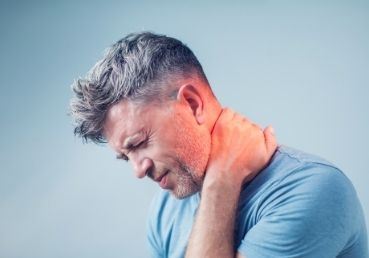Common Causes of Muscle Aches & Helpful Treatments

Posted by Tony Mers
Muscle pain can be a frustrating obstacle standing between you and your everyday activities. This frustration can be even more poignant for the 50 million people who suffer from chronic pain because it may seem to have no cause, making it difficult to treat.
But pain always has a source, which means it typically has a possible treatment. Knowing some of the common causes of muscle aches and helpful treatment options that are available can help you get to the bottom of muscle pain in your life.
Causes of Muscle Aches
Delayed Onset Muscle Soreness (DOMS)
When our muscles perform a strenuous activity, such as an intense workout or physical chore, they experience microscopic tears. It sounds alarming at first, but this slight tearing is natural and leads to the development of muscle mass.
However, it also causes the muscles to become sore 12–24 hours after you’ve completed the activity, a condition called delayed onset muscle soreness or DOMS. This dull ache is not necessarily indicative of a serious injury and usually fades after a few days.
Old Injuries
An injury that you may think has healed can cause lingering muscle aches and pains for years after. This often happens because the injury did not heal completely. S tress, changes in atmospheric pressure, dehydration, or even certain foods can trigger pain flare-ups.
Medical Condition
In some circumstances, muscle pain, spasming, or tingling may be signs of an underlying health condition, such as a neuromuscular disorder. A few common conditions that cause muscle pain include:
- Fibromyalgia
- Polymyositis
- Hypothyroidism
- Arthritis
- Autoimmune disorders
Any illness that involves a fever, such as influenza or COVID-19, may also cause muscle aches.
Treatments for Muscle Pain
Heat and Cold Therapy
Beyond medication, heat and cold therapy is one of the more common treatments for muscle pain, in part because it is so simple to implement. Applying heat to affected areas can relax tense or strained muscles, while applying ice packs can reduce inflammation to promote healing.
Massage Treatments
Many people consider massage a luxury treatment; however, massage can also reduce muscle pain. Massage helps break up knots and scar tissue and relax tense muscles. Some types of massage can also incorporate aspects of heat and cold therapy for even deeper healing.
Electronic Muscle Stimulation (EMS)
EMS, like its sister treatment TENS, involves sending electric pulses into the body. In this case, however, it focuses on the muscles. This does several things for the body:
- Releases endorphins
- Alters your perception of pain
- Strengthens muscles
- Loosens tight muscles
Combined, these factors may make a stim unit effective in targeting many of the common causes of muscle aches.
Making the Right Choice
Pain is part of life, but knowing the causes of muscle aches and helpful treatments can allow you to make the right choice for handling your pain. However, you should consult your primary care physician before embarking on a treatment plan.
SHARE:

